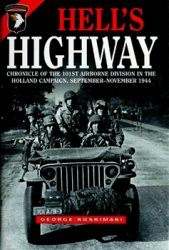The two men who revived philosophy for the first time in the medieval Latin West, at the court of Charlemagne, were Theodulf (d. 821), a Visigoth from Spain and the Anglo-Saxon Alcuin (d. 804) from York (see Bullough
2004). Both were accomplished poets in the classical style, theologians, and among Charlemagne’s most trusted administrators; Theodulfwas rewarded with the bishopric of Orleans (798) and the abbacy of Fleury; Alcuin was made abbot of Tours (796). Their principal contribution was, in each case, in reviving logic and using it for theological purposes. Theodulf’s most important theological work is the Opus Caroli regis contra Synodum or (as it is more commonly known) the Libri carolini, the response written in 792-793 in Charlemagne’s name to the Greek position on image worship taken at the Council of Nicaea in 787 (Theodulf of Orleans 1998; cf. Freeman 2003). Despite the work’s achievement in proposing a moderate attitude to the use of images, it was never actually issued, probably because the Papacy accepted the Greek view. The most remarkable section for historians of logic is IV, 23. In order to show that ‘‘to kiss’’ and ‘‘to adore’’ do not mean the same thing, Theodulf indulges in a display of his knowledge of logic - far beyond anything required for his point - borrowing from Boethius’ first commentary on On Interpretation and from Apuleius’ Peri Hermeneias.
Although the fate of the Opus Caroli means that this logical passage cannot have had any direct influence, it is perhaps no accident that Fleury became one of the outstanding centers for logic in the early Middle Ages.
According to the new datings proposed by Donald Bullough (1991:37; 1997:581-582), Alcuin’s De dialectica, the first logical textbook of the Middle Ages, was not written until after the Opus Caroli. But if - as seems probable (cf. Bohn 2004) - the traditional dating of 786-790 is correct, then Alcuin retains the credit for reintroducing the study of logic into medieval Northern Europe. The De dialectica (Alcuin 1851:951-976) is, with one exception, almost entirely derived from the accounts in Isidore’s Etymologiae and Cassiodore’s Institutiones (itself based on Isidore). But it seems to have been Alcuin’s own choice to have shifted the attention away from how logic is presented in these sources, as a tool for composing arguments, especially syllogistic ones, to the ten categories. The one textbook he draws from, extensively and verbatim, is a paraphrase of Aristotle’s Categories from the circle of Themistius (fourth century) which he believed was the work of Augustine. This attribution points to the special theological purpose he saw in the categories: without them, the ‘‘profound questions’’ about the Holy Trinity cannot be explained, he says (see Lehmann 1917; Marenbon 1997a).
Some of Alcuin’s ideas outside logic are also philosophically interesting. For example, in his treatise De rhetorica et de virtutibus (Halm 1863:523-550) he goes beyond his main source, Cicero, to discuss how philosophers can be said to be virtuous, and although he uses Augustine, he comes to a different view, much less hostile to pagan thinkers. Alcuin also wrote a short treatise De vera philosophia, as an introduction to his text books on the Arts (Alcuin 1851:849-854; cf. Marenbon 1994: 172-173), in which he melds the biblical idea of wisdom with the philosophical wisdom to be attained through studying the seven liberal arts.




 World History
World History









